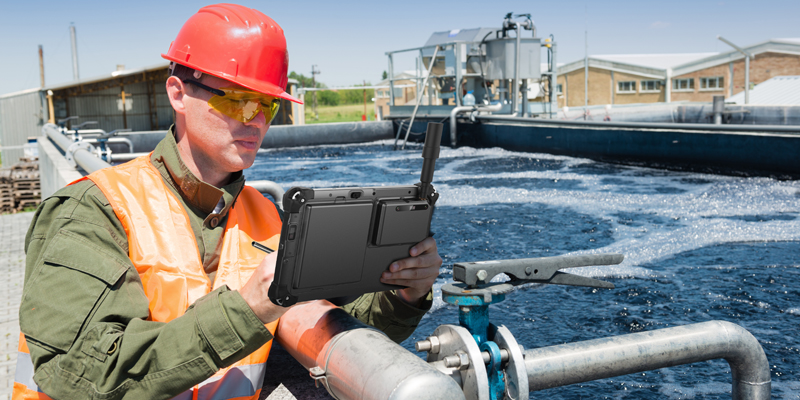
In the dynamic landscape of electric utility field services, the integration of cutting-edge technologies like Artificial Intelligence (AI) and Machine Learning (ML) alongside rugged tablets is redefining operational efficiency, asset management, and customer service. As the demands on utility companies evolve in response to the changing energy landscape, the role of rugged tablets becomes increasingly vital in facilitating Smart Field Services for enhanced asset management and customer satisfaction.
AI, ML, and GenAI in Rugged Tablets
In rugged tablets, Artificial Intelligence (AI), Machine Learning (ML), and the aspiration toward General Artificial Intelligence (GenAI) converge to enable advanced functionalities tailored for smart field services. AI algorithms empower rugged tablets to understand voice commands, recognize images for diagnostics, and predict maintenance needs, enhancing efficiency and accuracy in asset management. ML models optimize performance and customize applications based on user interactions, while the aspiration toward GenAI drives the development of adaptive interfaces and autonomous functions, ensuring rugged tablets adapt to diverse field conditions and deliver superior performance and reliability.
The Evolution of Electric Utility Field Services
Electric utility companies are constantly adapting to meet the challenges posed by technological advancements, regulatory changes, and growing customer expectations. The traditional approach to field services relied heavily on manual processes, leading to inefficiencies, delays, and increased operational costs. However, the emergence of AI, ML, and rugged tablets has ushered in a new era of smart field services, enabling utilities to streamline operations, optimize asset management, and deliver superior customer service.
Leveraging AI/ML & GenAI for Enhanced Asset Support
AI and ML algorithms, powered by GenAI technologies, play a transformative role in revolutionizing electric utility field services. These technologies analyze vast amounts of data collected from sensors, smart meters, and other IoT devices to provide valuable insights into asset performance, predictive maintenance requirements, and outage predictions. By harnessing the power of AI and ML, utility companies can proactively identify potential issues, prevent downtime, and optimize asset lifecycle management.
Real-World Applications and Benefits
The integration of rugged tablets equipped with AI/ML capabilities enables field technicians to access critical information, collaborate in real time, and perform tasks with greater efficiency and accuracy. For example, rugged tablets equipped with AI-powered image recognition can help technicians identify equipment faults or anomalies quickly, reducing diagnosis time and improving repair outcomes. Additionally, AI-driven predictive analytics can anticipate equipment failures before they occur, allowing utilities to schedule maintenance proactively and minimize service disruptions.
Future Trends in Electric Utility Field Services
As AI, ML, and rugged tablets continue to advance, the future of electric utility field services holds immense potential for innovation and improvement. Enhanced connectivity, advancements in edge computing, and the proliferation of IoT devices will further empower utilities to optimize asset management, increase operational efficiency, and deliver superior customer experiences. Additionally, the integration of AI-driven virtual assistants and augmented reality tools will revolutionize field technician training, troubleshooting, and on-site support, driving further gains in productivity and service quality.
The convergence of rugged tablets, AI, and ML technologies is transforming electric utility field services, enabling utilities to enhance asset management, improve operational efficiency, and elevate customer service standards. By embracing these cutting-edge technologies and leveraging real-time data insights, utility companies can stay ahead of the curve in an increasingly competitive and dynamic market landscape. As we look toward the future, the continued evolution of smart field services promises to unlock new opportunities for innovation, growth, and sustainability in the electric utility sector.

